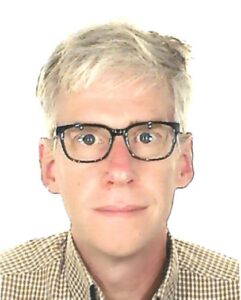Francis P. Crawley, IDPC Chair, 2022-2025
Francis P. Crawley served as Chair of the CODATA International Data Policy Committee (IDPC) from July 2022 to October 2025. A philosopher by training, he has built a distinguished international career in bioethics, research policy, and data governance, with special expertise in research ethics, research integrity, methodology, and the ethics and law of data, artificial intelligence, and digital twins – especially in relation to the life sciences, including clinical trials, genomics, and emerging technologies.
His work supports the CODATA mission to advance open science and promote FAIR data principles by integrating ethical, legal, and new technology challenges into data policy, particularly in the context of crisis management, global collaboration, AI, data visitation, and responsible research assessment. He has contributed to major international efforts to ensure that data sharing and data-driven research are ethical, reliable, and resilient across borders and sectors.
Francis has extensive experience developing health-related research projects and data governance frameworks in partnership with organizations such as WHO, UNAIDS, UNESCO, the European Commission, the Council of Europe, EDCTP, and numerous academic, governmental, and community-based bodies across Europe, Africa, Asia, the Americas, and Eastern Europe & Central Asia. He is widely recognized for his leadership in global research ethics, capacity-building, and policy development for vulnerable and resource-limited settings, including neglected and orphan diseases.
He has taken leading roles in developing international and national guidelines on Good Clinical Practice (GCP), ethics review systems, genetics and biobanks, and data privacy and management. He is also a European Data Protection Officer (DPO) with specific expertise in the ELSI (ethical, legal, and social implications) dimensions of AI, digital twins, and neural organoids. Francis is deeply committed to engaging patients, citizen scientists, communities, researchers, and policymakers in the co-creation of data infrastructures and research governance, contributing to patient registries, biobank networks, and data repositories.
During the COVID-19 pandemic, Francis played a central role in coordinating international ethics and policy responses. He organized over 40 global webinars and supported multi-country research on vaccines, repurposed medicines, and genetic modelling, with an emphasis on responsible collaboration between high-income and low- and middle-income countries. He continues to workon the policy, ethical, and regulatory dimensions of data and AI in times of crisis and is the founder and coordinator of the Ukraine Clinical Research Support Initiative (UCRSI), working in close cooperation with Ukrainian and international partners.
Francis’ academic career includes being responsible for the BA, MA, and PhD programmes in philosophy at KU Leuven, where he taught research ethics and integrity, revised doctoral training frameworks, and supported international cooperation through the Erasmus Programme. His scholarly work has explored the evolution of European higher education, the history of bioethics, the impact of digital technologies on philosophy, and the role of culture and multiculturalism in shaping research systems.
 Mark Leggott, IDPC Chair, 2020-2021
Mark Leggott, IDPC Chair, 2020-2021
As the Executive Director for Research Data Canada (RDC), Mark facilitates the adoption of best practices in research data management (RDM) at the national and international levels. This includes engaging with stakeholders in all sectors, public and private, and via events such as the National Data Services Framework Summit, which is a key initiative in Canada developing details around national data services. As the Director of CANARIE’s RDM Program, Mark has helped shape a funding approach based on the FAIR Principles, national data services, and interoperability.
Mark is Co-Chair of the Research Data Alliance Council, and co-chaired the RDA COVID-19 Working Group, which released its’ first Guidelines on data sharing for COVID-19 research at the end of June, 2020. Mark provides a Secretariat function for the Canadian National Committee for CODATA, sits on a number of national and international committees with a focus on RDM, and participates in standards development efforts, including an ISO technical sub-committee reviewing the Research Activity ID (RaID).
Prior to RDC, Mark served as the University Librarian at two Canadian institutions, along with senior administrative roles in technology and continuing education. Mark has long been a proponent of things open, from open source and open access to open science and open innovation. Mark founded a number of open source projects, including the Islandora project, along with the Islandora Foundation, and a private start-up, discoverygarden inc., all of which continue to provide solutions in a collaborative context to the international community. Mark’s initial graduate work was in aquatic entomology and ecology, where he studied the thermal evolution of a species of damselfly. This background continues to inform and shape Mark’s work today. Mark’s current interests revolve around the intersections between open science, open source, and open innovation, both in terms of the policy and the technical details.
Mark holds a B.Sc. (1980) from Saint Mary’s University, an M.Sc. (1984) from the University of Calgary, and an M.L.I.S from Dalhousie University (1986) and
(ORCID: https://orcid.org/0000-0003-1392-7799)
Paul UHLIR, JD, IDPC Chair, 2014-2020
 Consultant, Information Policy and Management (National Academy of Sciences, retired), Callicoon, NY, USA
Consultant, Information Policy and Management (National Academy of Sciences, retired), Callicoon, NY, USA
PAUL F. UHLIR, J.D., is a consultant in information policy and management. He was Scholar at the National Academy of Sciences (NAS) in Washington, DC in 2015-2016, and Director of the Board on Research Data and Information at the NAS, 2008-2015. Paul was employed at the NAS from 1985-2015, first as a senior staff officer for the Space Studies Board, where he worked on solar system exploration and environmental remote sensing studies for NASA, and then as associate executive director of the Commission on Physical Sciences, Mathematics, and Applications. He directed the Office of International S&T Information for eight years after that, where he organized projects and meetings on scientific data throughout the world, and from 1992 to 2015 he was director of the US CODATA at the NAS. Before joining the NAS, he worked in the general counsel’s office at the National Oceanic and Atmospheric Administration of the Department of Commerce in Washington, DC.
Paul has written or edited 27 books and over 70 articles, mostly in data law, policy, and management. He speaks worldwide on these topics and consults to governments, professional organizations, and universities. In 1997 he won the National Research Council’s Special Achievement Award and in 2010 the CODATA International Prize, both in the field of data policy. He was elected Fellow of the American Association for the Advancement of Science in 2011.
Paul has a B.A. degree in world history from the University of Oregon (1977), and a Master’s degree in foreign relations and a Juris Doctor degree from the University of San Diego (1983, 1984). For more detailed information about his professional activities, see his website at: www.paulfuhlir.com
Page last updated, 28 October 2025.
